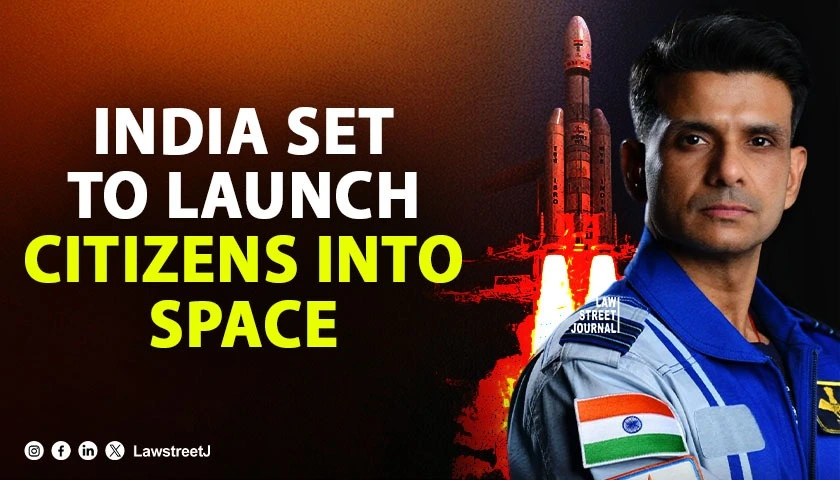New Delhi: India’s human spaceflight ambitions moved a step closer this week after Group Captain Shubhanshu Shukla, the first Indian astronaut to visit the International Space Station (ISS), announced that Indian citizens will “very soon” travel to space aboard an indigenously built rocket and crew capsule. Speaking at the Bengaluru Tech Summit 2025, Shukla highlighted the increasing role of domestic technology and private-sector partnerships in advancing the Gaganyaan program.
Indigenous Human Spaceflight: Progress Toward Gaganyaan
Group Captain Shubhanshu Shukla served as mission pilot for Axiom Mission 4 (Ax-4), a commercial ISS flight during which he conducted seven microgravity experiments. He returned to Earth on July 15, 2025, after spending 18 days aboard the station. His mission data is now being used by the Indian Space Research Organisation (ISRO) to refine procedures for Gaganyaan, India’s first crewed spaceflight initiative.
The Gaganyaan mission aims to carry Indian astronauts into low Earth orbit using the LVM-3 launch vehicle and an indigenously designed crew module. Four astronaut candidates have already completed basic training, and mission-specific training is expected to begin soon. ISRO has scheduled the crewed mission for 2027, supported by a series of ongoing uncrewed test flights to validate life-support systems, abort mechanisms, and re-entry capabilities.
The mission operates under the regulatory framework of the proposed Space Activities Bill, currently under review by the Ministry of Law and Justice. The bill seeks to regulate India’s commercial and government-led space activities, ensure compliance with international obligations such as the Outer Space Treaty of 1967, and establish liability norms for launch and in-orbit operations. Once enacted, it is expected to provide the legal foundation for future human spaceflight missions and private industry involvement.
Start-Ups and Innovation Shaping India’s Space Ecosystem
At the summit, Shukla noted that more than 300 Indian space start-ups are now working across the sector. These companies operate in areas including satellite manufacturing, launch vehicle development, propulsion systems, and space-based data services. Their work is coordinated through the Indian National Space Promotion and Authorization Center (IN-SPACe), which authorizes private entities to access ISRO facilities and participate in national missions.
Notable contributors include Skyroot Aerospace, which launched India’s first privately built rocket, Vikram-S, in 2022, and Agnikul Cosmos, which is developing modular launch vehicles tailored for small-satellite deployment. Both operate under IN-SPACe’s regulatory oversight, which includes safety audits, licensing requirements, and compliance with the draft Space Activities Bill.
IN-SPACe functions as a single-window approval mechanism for private participation and ensures adherence to global space-governance rules such as the Registration Convention of 1976 and the Liability Convention of 1972, which govern the registration and liability management of space objects launched by member states.
During his address, Shukla detailed the physiological pressures associated with space travel. Astronauts can experience up to 8 G-forces during launch, followed by spatial disorientation, muscle atrophy, and bone-density loss in microgravity. These conditions drive ongoing biomedical research and engineering development within ISRO and collaborating institutions.
ISRO’s Human Spaceflight Centre (HSFC) manages all crew-related systems, including life-support, safety protocols, and landing procedures. The centre works with the Institute of Aerospace Medicine (IAM) and international partners to simulate mission conditions and conduct advanced medical tests for astronaut candidates.
Legal provisions for mission safety and astronaut welfare are included in ISRO’s operational guidelines and are expected to be formalized through the forthcoming Space Activities Bill. The draft legislation proposes mandatory insurance for crewed missions, liability frameworks for launch failures, and mechanisms for dispute resolution under Indian jurisdiction.









